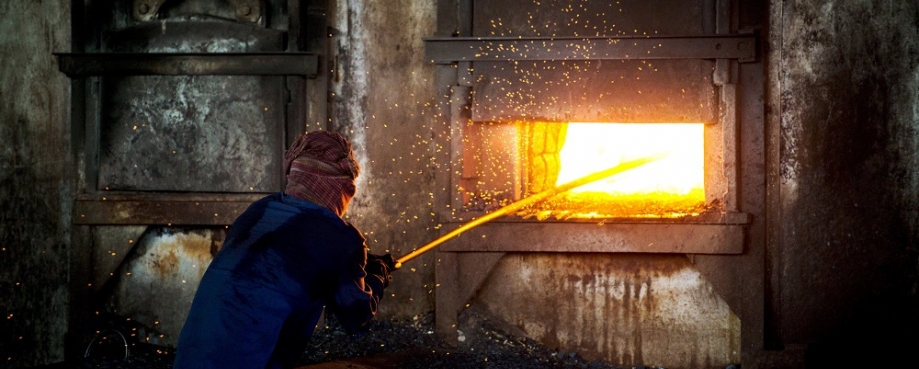
Stirling Smith, ETI trainer and blogger, reflects from India on the link between a Nobel prize winner and an old piece of law
This blog always tries to be useful to our dear readers. So here is a piece of information which could well come up in one of those Christmas quizzes.
Who won the Nobel Prize for economics in 2017?
The answer is Richard Thaler. When the award was announced, most of the articles talked about him as the inspiration for “nudge economics”, but he also did some very interesting research for his PhD.
Thaler asked: how much was a human life worth? He found there was a big gap between what people (managers) would pay to prevent a one in 100,000 risk of death ($2000) and what other people (like workers) would expect to be paid to run the risk of a one in 100,000 risk of death (at least $500,000).
A boiler explosion
So what does this have to do with workers’ rights?
On 1st November this year, 36 workers were killed in a boiler explosion in India. Around 100 others suffered 70%+ burns. It is still making headlines.
The accident took place at the Unchahar Plant of the National Thermal Power Corporation (NTPC) in the state of Uttar Pradesh. It’s an electricity generator - one of the biggest in India.
There’s a lot we don’t know about the blast, and an enquiry has been announced which hopefully will come to a speedy and objective conclusion. But from the size of the explosion, it’s clear that very serious mistakes were made, and violations of an old law, the Boiler Act of 1923.
For at least the first century of the Industrial Revolution, factories were driven by steam. Go around one of the old textile museums in the north of England and you may see huge flywheels driven by steam which provided power to all the spinning and weaving machines via an elaborate arrangement of pulleys.
That steam was produced by boilers and there were repeated disasters when boilers exploded.
In 1854, Sir William Fairbairn, founded the Manchester Steam Users Association for the Prevention of Boiler Explosions and for the Attainment of Economy in the Application of Steam.
Fairbairn’s proposal was quite simple, that there should be periodic inspections of steam boilers. And this became law with the Boiler Explosions Act 1882.
As India’s textile industry grew in the late 19th century, it had the same problems and so eventually the British legislation was transposed to the subcontinent. The 1923 Boiler Act runs to 16 pages, and state governments have to pass detailed rules on its application.
Labour law reform?
Laws, rules and regulations, which employers should follow, are often termed ‘red tape’ by politicians, and sometimes businesses, keen to restrict labour rights or reduce spending.
That’s perhaps why Indian Prime Minister Mr. Narendra Modi singled out boiler regulation as an example of the need for employers to self-certify safe workplaces.
In 2014 he said "When we purchase a new car, do we require a government inspector to check if the brakes, the accelerator and the gears function as they should? No, we don't. We very well know that to maintain our car, its brakes and gear box is in our own interest - it is a question of our own life and death."
None of the workers killed in the boiler explosion could ever have hoped to own a car. They were all daily rated “contract labour” paid 2-300 rupees a day - between three and four quid, with no benefits, holidays, overtime pay, or social security.
That’s about half what India’s trade unions are demanding should be the national minimum wage.
'Red tape' saves lives
Sadly, nearly three million workers throughout supply chains die every year through the neglect of safety and health measures. And some of these workers will be in the supply chains of ETI members and other global companies.
Now, it’s true that some of this costs money. We know that sprinkler systems are effective in putting out fires in 99% of cases - according to the Chief Fire Officers Association. They can be very expensive, but as the Grenfell Tower tragedy shows, it’s a price worth paying.
And it doesn’t always cost big money.
For example, we could cut the toll of occupational accidents and disease in our supply chains in half through the simple measure of allowing workers to elect their own workplace safety representatives. That’s what we’ve achieved in the UK.
Research has shown that involving workers, and especially trade unions has a big impact on safety, as unions can make the case for investing in safety improvements.
It doesn’t take a Nobel prizewinner to work out the benefits.
